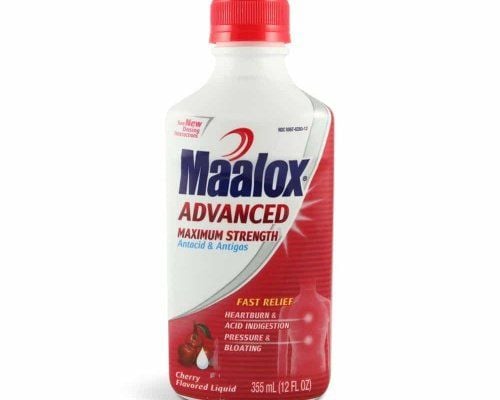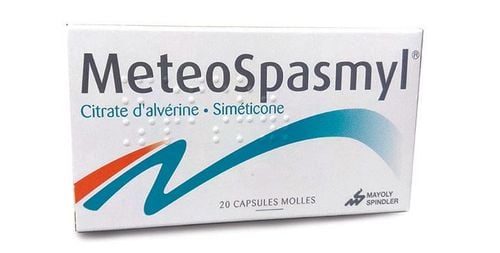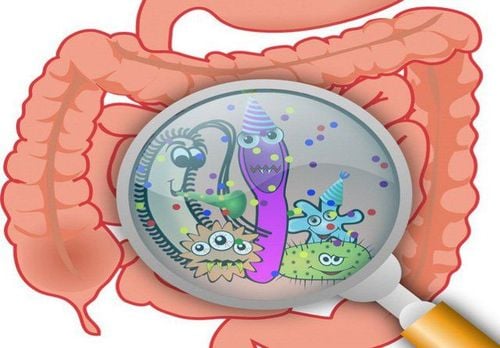This is an automatically translated article.
The article was professionally consulted by Doctor Department of Gastroenterology - Endoscopy, Department of Medical Examination & Internal Medicine - Vinmec Central Park International General Hospital.
Patients with intestinal obstruction due to food residues often find it difficult to accurately diagnose the cause until surgery. The goal of treatment is to help the patient get rid of the undigested food residue and prevent recurrence. In case of not timely treatment, the disease can cause many dangerous complications such as dehydration, electrolyte loss due to low blood pressure, vomiting, premature collapse...
1. What is an intestinal obstruction due to food residue?
Intestinal obstruction due to food residue is one of the common surgical emergencies in hospitals. This is a phenomenon in which a patient has a mass of food residue (plant food residue, animal food residue, hair mass or a mixture of many types) forming in the stomach and then moving down to obstruct the small intestine. Most cases of patients with intestinal obstruction due to food residue must be treated with surgical methods to remove the residue.
Subjects susceptible to intestinal obstruction due to food residues are those who have undergone gastric bypass surgery, the elderly who have lost their teeth, patients with chronic pancreatitis who have poor digestion of food, children who overeat lots of fruit or people who eat a lot of fiber....

2. Why can food residue cause intestinal obstruction?
The reason food residues can cause intestinal obstruction is because they have too many tough, fibrous fibers and are difficult to digest, there are more cases of patients with reduced gastric acid, pancreatic exocrine insufficiency, fibrositis. pancreas, pancreatic insufficiency or inability to chew due to toothache, tooth loss... the more difficult it is to digest and make it easier for them to accumulate to form a mass that causes intestinal obstruction.
3. Signs of intestinal obstruction due to food residue
Some of the symptoms that warn of a bowel obstruction due to food residues that a patient may experience include:
Abdominal pain: Any patient with a bowel obstruction due to food waste will present with abdominal pain that occurs suddenly or severe, increasing pain intensity, localized on the navel, around the navel on the left or right side of the abdomen, pelvis and then rapidly spreading to the whole abdomen; Nausea, vomiting: When a patient has a bowel obstruction due to food residue, it is easy to identify, but sometimes the patient does not vomit but only has nausea, so it is often subjective. Accompanied by signs of nausea, the patient may also have pain due to increased peristalsis and antiperistalsis. For people with intestinal obstruction due to food residues, the vomit is first food, then bile and digestive juices. In the case of vomiting stool, it means that the bowel obstruction is too late, and at the same time, late vomiting is often accompanied by abdominal distension; Constipation: This symptom represents a blockage in the circulation of substances in the intestinal lumen, and is also a decisive clinical symptom for the diagnosis of intestinal obstruction, but it is also the most difficult to determine, because it is a sign of bowel obstruction. subjective and often overlooked.

4. Is intestinal obstruction due to food residue dangerous?
Patients with intestinal obstruction due to food residue will develop disturbances in the intestinal segment above the obstruction, the disorder occurs very quickly and progresses severely, causing damage to the intestinal wall.
In addition, the bowel above the obstruction will be distended and distended due to the accumulation of gas and stagnant fluid. At the same time, the increased pressure in the intestinal lumen also causes venous stasis and decreased capillary perfusion, making the intestinal mucosa damaged, edematous, congested leading to decreased absorption and loss of absorption, causing stasis. deposited in the intestine.
Patients who vomit a lot will also reduce fluid retention on the obstruction and high pressure in the intestinal lumen, aggravate dehydration and electrolyte disturbances, acid-base balance, easily lead to kidney failure. same danger.
The state of abdominal distension, secretion of fluid into the abdomen, and fluid retention in the intestinal lumen in people with intestinal obstruction due to food residues will also cause the diaphragm to be pushed up, plus limited respiratory movements will reduce pulmonary ventilation and affect the compensatory mechanism of the body.
Intestinal obstruction due to food residues, if not detected and intervened in time, can cause life-threatening complications, which should be wary of this disease.
5. Prevention of intestinal obstruction due to food residue
The elderly are very susceptible to intestinal obstruction due to food residue, so when processing food, it is necessary to choose soft foods, low in fiber. In addition, special attention should be paid to the time of eating, do not eat when hungry because at that time the stomach is still empty, so the concentration of HCl is high. Fruits with a lot of fiber and a lot of resin are also prone to precipitation, which binds plant fibers, forming a solid residue.
Some notes in the prevention of intestinal obstruction due to food residues include:
When processing food, it should be cooked, simmered and chewed thoroughly before eating; Should maintain the habit of drinking enough water every day, at least 2 liters of water / day; Build a habit of exercising regularly every day to help the intestines be stimulated and easy to contract as well as better circulation; Avoid direct swallowing of hard, chewy foods because they can form a filling for other foods to stick to; Should eat more viscous vegetables such as okra, jute vegetables, spinach to easily absorb water, prevent constipation; Do not eat too many fruits with acrid taste, do not eat them on an empty stomach or eat with foods high in protein. In summary, most cases of patients with intestinal obstruction due to food residue require emergency surgery, if not treated promptly, there is a risk of intestinal ischemia, intestinal rupture, abdominal infection, electrolyte disturbance, blood poisoning, even death. Therefore, if the patient has unusual symptoms of pain, abdominal distension, they should absolutely not be subjective and arbitrarily buy drugs, but go to reputable medical facilities to accurately diagnose the cause of the pain and have a cure. timely intervention.
Vinmec International General Hospital has full technical facilities and qualifications to effectively implement methods of diagnosis and treatment of intestinal obstruction. There is a team of well-trained and experienced gastroenterology specialists; Professional medical service quality will bring the most satisfaction and peace of mind to patients.
Please dial HOTLINE for more information or register for an appointment HERE. Download MyVinmec app to make appointments faster and to manage your bookings easily.













